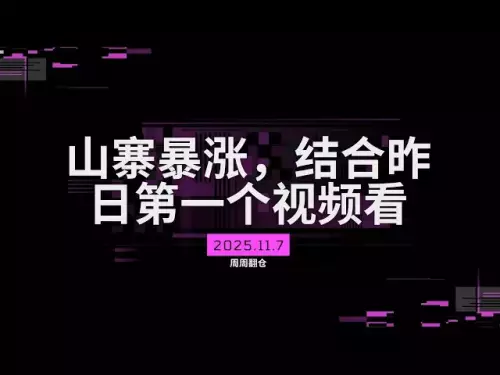-
 bitcoin
bitcoin $101752.865364 USD
-1.09% -
 ethereum
ethereum $3382.985899 USD
-1.38% -
 tether
tether $0.999658 USD
0.04% -
 xrp
xrp $2.272505 USD
-1.51% -
 bnb
bnb $989.089004 USD
0.14% -
 solana
solana $156.962612 USD
-3.08% -
 usd-coin
usd-coin $0.999776 USD
0.01% -
 tron
tron $0.290786 USD
-0.69% -
 dogecoin
dogecoin $0.174594 USD
-2.86% -
 cardano
cardano $0.560085 USD
-3.55% -
 hyperliquid
hyperliquid $40.023704 USD
-5.75% -
 chainlink
chainlink $15.324649 USD
-2.78% -
 bitcoin-cash
bitcoin-cash $493.576540 USD
-3.52% -
 zcash
zcash $571.320038 USD
-12.05% -
 stellar
stellar $0.280066 USD
-4.26%
What is smart contract on blockchain?
Smart contracts leverage blockchain technology to automate the execution of predetermined terms, ensuring trustless, transparent, and efficient transactions.
Oct 08, 2024 at 10:31 am
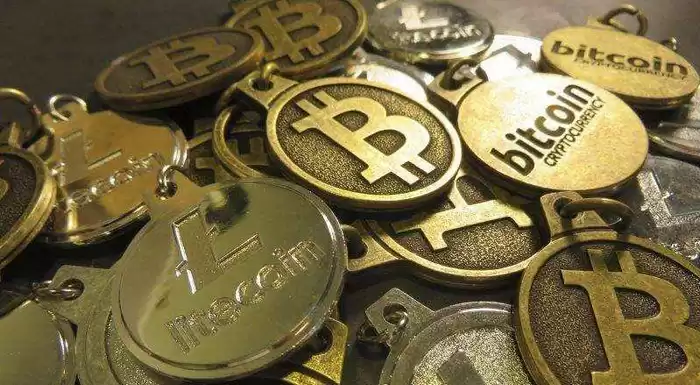
A smart contract is a self-executing contract written in code and deployed on a blockchain network. It automates the execution of predetermined terms and conditions between parties based on specific inputs and outputs.
2. Function of Smart ContractsSmart contracts facilitate trustless, transparent, and efficient transactions by:
Enforcing agreement terms: Automatically executing preset actions upon specific conditions.
Eliminating intermediaries: Removing the need for third-party verification and record-keeping.
Reducing costs and delays: Streamlining processes and saving on transaction fees and paperwork.
Ensuring transparency and immutability: Storing all contract terms and execution records on a decentralized, tamper-proof blockchain.
Codebase: The actual computer code that defines the contract's logic and functionality.
Conditions: Pre-determined triggers that initiate contract execution.
Actions: The specific actions that occur when the conditions are met.
Parties: The individuals or organizations involved in the contract.
Security: Encryption and authentication mechanisms to protect the contract from unauthorized access or manipulation.
Increased trust and accountability
Lower costs and faster transaction times
Elimination of intermediaries
Improved transparency and auditability
Enhanced security and data integrity
Smart contracts have a wide range of applications, including:
Supply chain management
Financial transactions
Identity verification
Voting systems
Property management
Dispute resolution
Legal and regulatory complexities
Technical vulnerabilities and code bugs
Costs of development and deployment
Scalability and performance concerns in high-volume scenarios
Ensuring the reliability and fairness of codebase implementation
Smart contracts revolutionize the execution of agreements by automating contract enforcement and eliminating the need for intermediaries. While overcoming challenges like security and scalability are ongoing, smart contracts hold immense potential to enhance efficiency, transparency, and trust in various industries.
Disclaimer:info@kdj.com
The information provided is not trading advice. kdj.com does not assume any responsibility for any investments made based on the information provided in this article. Cryptocurrencies are highly volatile and it is highly recommended that you invest with caution after thorough research!
If you believe that the content used on this website infringes your copyright, please contact us immediately (info@kdj.com) and we will delete it promptly.
- Ripple (XRP) in 2026: Hold or Fold? A Look at XRP's Future and Emerging DeFi Alternatives
- 2025-11-08 18:35:01
- Zcash ZEC Coin Price Explosion: From Privacy Niche to Center Stage
- 2025-11-08 18:55:01
- Berachain Price Prediction: Navigating the Honeycomb Hype in Crypto
- 2025-11-08 18:55:01
- Arthur Hayes, Gold, and Bitcoin: A Modern Monetary Trinity?
- 2025-11-08 19:15:01
- Shiba Inu's Next Move: Navigating a Shifting Market
- 2025-11-08 19:20:01
- Pakistan's Crypto Crossroads: Balancing Opportunity with Asset-Backed Realities
- 2025-11-08 19:20:01
Related knowledge

What is a state machine and how can a contract be designed as one?
Nov 08,2025 at 02:19pm
Understanding State Machines in Blockchain Context1. A state machine is a computational model used to design systems that transition between defined s...

How do you upgrade a smart contract using the UUPS proxy pattern?
Nov 09,2025 at 01:19am
Understanding the UUPS Proxy Pattern in Smart Contract DevelopmentThe UUPS (Universal Upgradeable Proxy Standard) pattern has become a cornerstone in ...
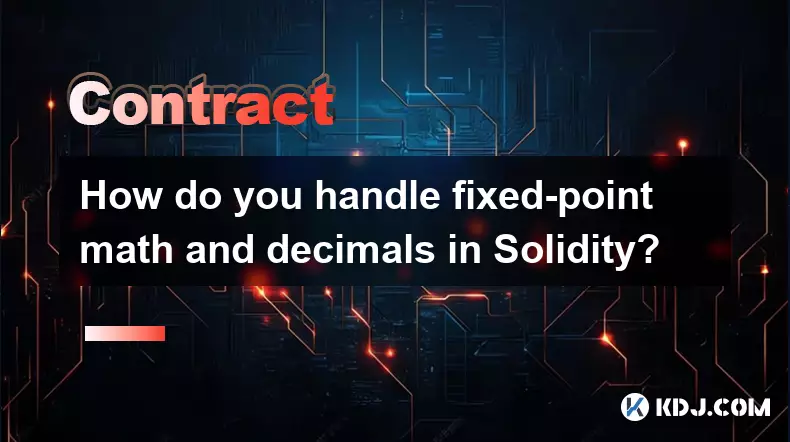
How do you handle fixed-point math and decimals in Solidity?
Nov 08,2025 at 11:40pm
Understanding Fixed-Point Arithmetic in Solidity1. Solidity does not natively support floating-point numbers, which means developers must rely on fixe...
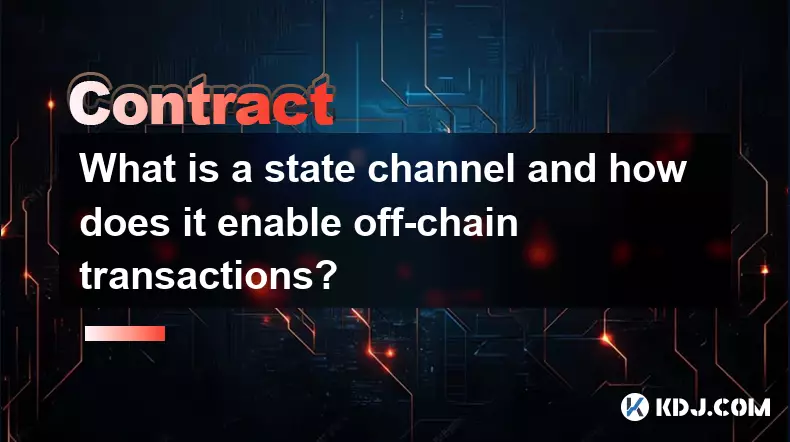
What is a state channel and how does it enable off-chain transactions?
Nov 09,2025 at 10:20am
Understanding State Channels in Blockchain Technology1. A state channel is a two-way communication pathway established between participants on a block...
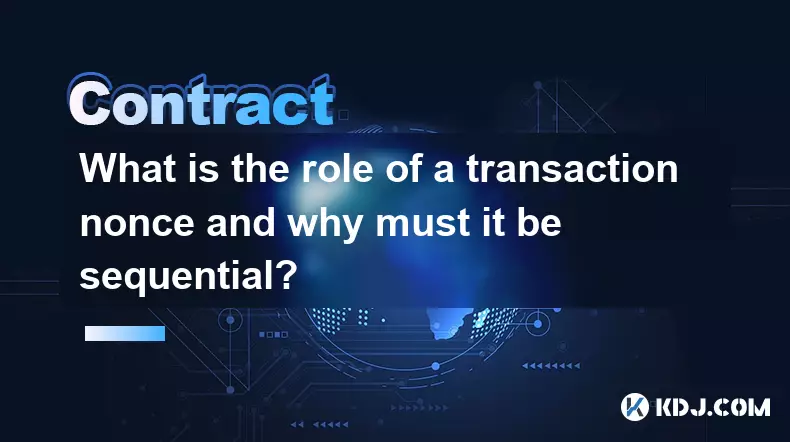
What is the role of a transaction nonce and why must it be sequential?
Nov 09,2025 at 01:00am
Understanding the Transaction Nonce in Blockchain Systems1. A transaction nonce is a number used once, associated with a user's account in blockchain ...
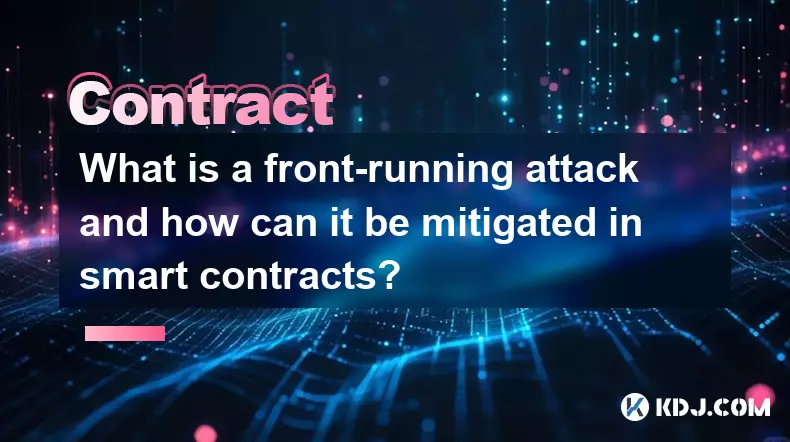
What is a front-running attack and how can it be mitigated in smart contracts?
Nov 08,2025 at 11:20am
Understanding Front-Running in Blockchain Transactions1. In the context of blockchain and decentralized applications, a front-running attack occurs wh...

What is a state machine and how can a contract be designed as one?
Nov 08,2025 at 02:19pm
Understanding State Machines in Blockchain Context1. A state machine is a computational model used to design systems that transition between defined s...

How do you upgrade a smart contract using the UUPS proxy pattern?
Nov 09,2025 at 01:19am
Understanding the UUPS Proxy Pattern in Smart Contract DevelopmentThe UUPS (Universal Upgradeable Proxy Standard) pattern has become a cornerstone in ...

How do you handle fixed-point math and decimals in Solidity?
Nov 08,2025 at 11:40pm
Understanding Fixed-Point Arithmetic in Solidity1. Solidity does not natively support floating-point numbers, which means developers must rely on fixe...

What is a state channel and how does it enable off-chain transactions?
Nov 09,2025 at 10:20am
Understanding State Channels in Blockchain Technology1. A state channel is a two-way communication pathway established between participants on a block...

What is the role of a transaction nonce and why must it be sequential?
Nov 09,2025 at 01:00am
Understanding the Transaction Nonce in Blockchain Systems1. A transaction nonce is a number used once, associated with a user's account in blockchain ...

What is a front-running attack and how can it be mitigated in smart contracts?
Nov 08,2025 at 11:20am
Understanding Front-Running in Blockchain Transactions1. In the context of blockchain and decentralized applications, a front-running attack occurs wh...
See all articles





















![The Graph Price Prediction [GRT Crypto Price News Today] The Graph Price Prediction [GRT Crypto Price News Today]](/uploads/2025/11/07/cryptocurrencies-news/videos/690d4df44fe69_image_500_375.webp)



